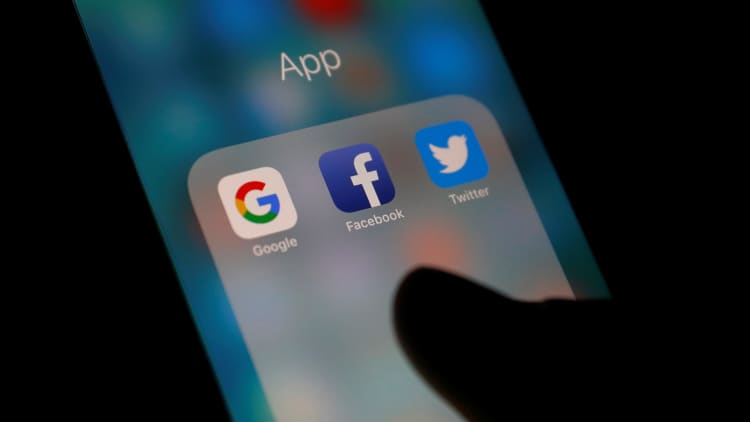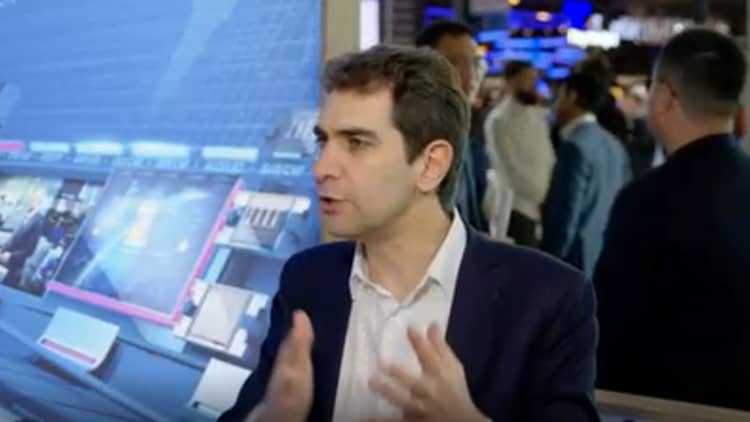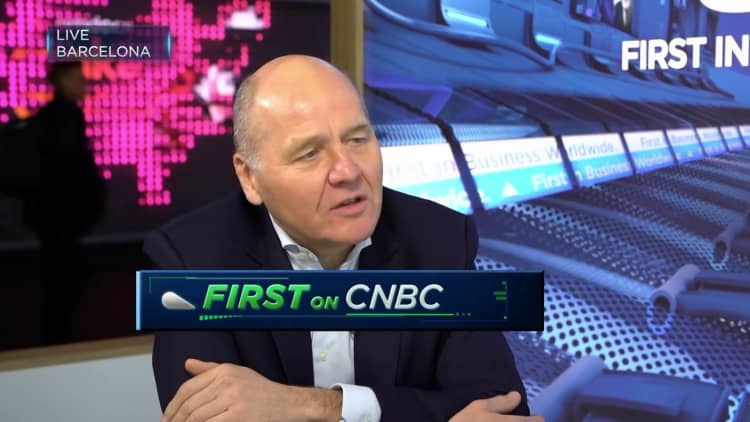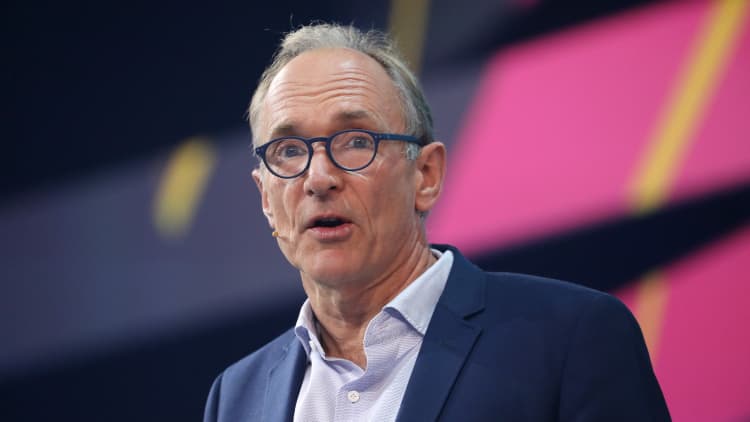Telcos urge EU to charge Big Tech for internet

Tensions among European telecommunications firms and U.S. Large Tech firms have crested, as telecom bosses mount stress on regulators to make electronic giants fork up some of the expense of developing the spine of the net.
European telcos argue that substantial online firms, primarily American, have created their corporations on the back of the multi-billion dollar investments that carriers have designed in internet infrastructure.
Google, Netflix, Meta, Apple, Amazon and Microsoft deliver almost fifty percent of all web site visitors now. Telcos believe these corporations really should fork out “fair share” service fees to account for their disproportionate infrastructure desires and support fund the rollout of upcoming-era 5G and fiber networks.
The European Fee, the EU’s govt arm, opened a consultation previous month analyzing how to handle the imbalance. Officers are trying to find views on whether to demand a direct contribution from web giants to the telco operators.
Major Tech companies say this would total to an “world wide web tax” that could undermine net neutrality.
What are telco giants expressing?
Top rated telecom bosses arrived out swinging at the tech businesses during the Cellular Planet Congress in Barcelona.
They bemoaned investing billions on laying cables and installing antennas to cope with soaring net demand from customers devoid of corresponding investments from Big Tech.

“Devoid of the telcos, with no the community, there is no Netflix, there is no Google,” Michael Trabbia, chief technological know-how and innovation officer for France’s Orange, instructed CNBC. “So we are unquestionably essential, we are the entry issue to the digital globe.”
In a Feb. 27 presentation, the CEO of German telecom group Deutsche Telekom, Tim Hoettges, confirmed audience users a rectangular illustration, representing the scale of market place capitalization among the different sector contributors. U.S. giants dominated this map.
Tim Hoettges, CEO of Deutsche Telekom, provides a keynote at Cell Planet Congress.
Angel Garcia | Bloomberg | Getty Pictures
Hoettges requested attendees why these firms could not “at least a little bit, contribute to the attempts and the infrastructure which we are developing below in Europe.”
Howard Watson, chief know-how officer of BT, claimed he sees merit in a payment for the significant tech gamers.
“Can we get a two-sided model to get the job done, wherever the consumer pays the operator, but also the content material supplier pays the operator?” Watson explained to CNBC past week. “I do imagine we need to be seeking at that.”
Watson drew an analogy to Google and Apple’s application suppliers, which charge builders a reduce of in-application income in return to use their companies.
What have U.S. tech companies claimed?
Endeavours to employ network service fees have been strongly criticized — not minimum by tech corporations.
Speaking on Feb. 28 at MWC, Netflix co-CEO Greg Peters labeled proposals to make tech firms pay world wide web service suppliers for network prices an online targeted visitors “tax,” which would have an “adverse outcome” on people.
Greg Peters, Co-CEO of Netflix, speaks at a keynote on the upcoming of entertainment at Mobile Earth Congress 2023.
Joan Cros | Nurphoto | Getty Pictures
Requiring the likes of Netflix — which previously spends greatly on information shipping and delivery — to shell out for network upgrades would make it more difficult to develop well-liked displays, Peters mentioned.
Tech corporations say that carriers now receive cash to devote in infrastructure from their prospects — who pay them through get in touch with, textual content and knowledge fees — and that, by asking net companies to fork out for carriage, they properly want to get compensated 2 times.
People may perhaps end up absorbing expenses questioned of digital information platforms, and this could eventually “have a unfavorable effects on individuals, especially at a time of selling price boosts,” Matt Brittin, Google’s head of EMEA, claimed in September.
Tech companies also argue that they are presently generating significant investments in European telco infrastructure, including subsea cables and server farms.
Rethinking ‘net neutrality’
The “honest share” debate has sparked some problem that the concepts of web neutrality — which say the world wide web must be free of charge, open, and not give priority to any a single services — could be undermined. Telcos insist they’re not trying to erode net neutrality.

Technologies corporations fear that individuals who pay back more for infrastructure might get much better community access.
Google’s Brittin claimed that truthful share payments “could perhaps translate into steps that effectively discriminate concerning different styles of site visitors and infringe the legal rights of conclude people.”
A person suggestion is to have to have unique bargaining offers with the Huge Tech corporations, comparable to Australian licensing types concerning information publishers and world-wide-web platforms.
“This has absolutely nothing to do with web neutrality. This has almost nothing to do with access to the network,” said Sigve Brekke, CEO of Telenor, advised CNBC on Feb. 27. “This has to do with the load of price.”
Quick-term remedy?
Carriers gripe that their networks are congested by a large output from tech giants. One particular alternative is to stagger content shipping at distinctive times to ease the load on network targeted traffic.
Electronic written content companies could time a new blockbuster film or recreation releases much more effectively, or compress the details delivered to ease the pressure off networks.
“We could just start off with owning a obvious agenda of what’s coming when, and getting in a position to have a dialogue as to whether or not corporations are using the most effective way of carrying the targeted traffic, and could specific non-time important content material be sent at distinctive times?” Marc Allera, CEO of BT’s shopper division, told CNBC.
“I assume that is a pretty, fairly simple discussion to be had, truly, whilst a good deal of the articles is world-wide, and what might be hectic in a person nation and just one time may or may not be hectic in one more. But I consider at a area amount is absolutely a actually effortless discussion to have.”
He prompt the web neutrality principle requires a bit of a refresh.
Not a ‘binary choice’
The “truthful share” debate is as previous as time. For above a 10 years, telecom operators have complained about in excess of-the-major messaging and media services like WhatsApp and Skype “free using” on their networks.
At this year’s MWC, there was one particular notable variation — a higher-position EU official in the area.
Thierry Breton, inner marketplace commissioner for the European Union, delivers a keynote at Mobile Entire world Congress in Barcelona.
Angel Garcia | Bloomberg | Getty Photos
Thierry Breton, head of inside markets for the European Commission, mentioned the bloc ought to “obtain a funding product for the substantial investments required” in the advancement of up coming-generation mobile networks and emerging systems, like the metaverse.
Breton reported it was essential not to undermine net neutrality and that the discussion should really not be characterised as a “binary option” among world wide web company companies and Large Tech companies.
Breton’s existence at MWC appeared to mirror the bloc’s sympathies toward Major Telecom, according to Paolo Pescatore, tech, media and telecom analyst at PP Foresight.
“The problem in Europe is it can be not that obvious reduce for the reason that you have an imbalance,” Pescatore stated. “The imbalance is not down to Massive Tech, it can be not down to streamers, and it is really not down to telcos. It can be down mostly to the old, out-of-day regulatory setting.”
A lack of cross-border consolidation and stagnating revenues in the telecoms sector created a “great concoction that’s unfavorable to telcos,” he mentioned.
“A probable landing zone for resolution is a framework for telcos to negotiate independently with the tech companies that crank out the heaviest targeted visitors,” Ahmad Latif Ali, European telecommunications insights guide at IDC, informed CNBC. “Having said that, this is a very contested situation.”
Enjoy: 3 many years just after inventing the web, Tim Berners-Lee has some suggestions on how to correct it

